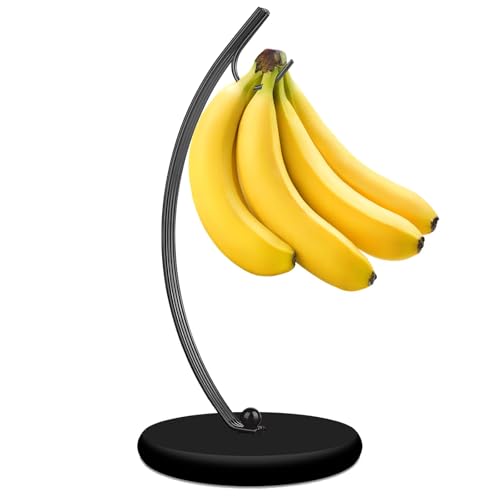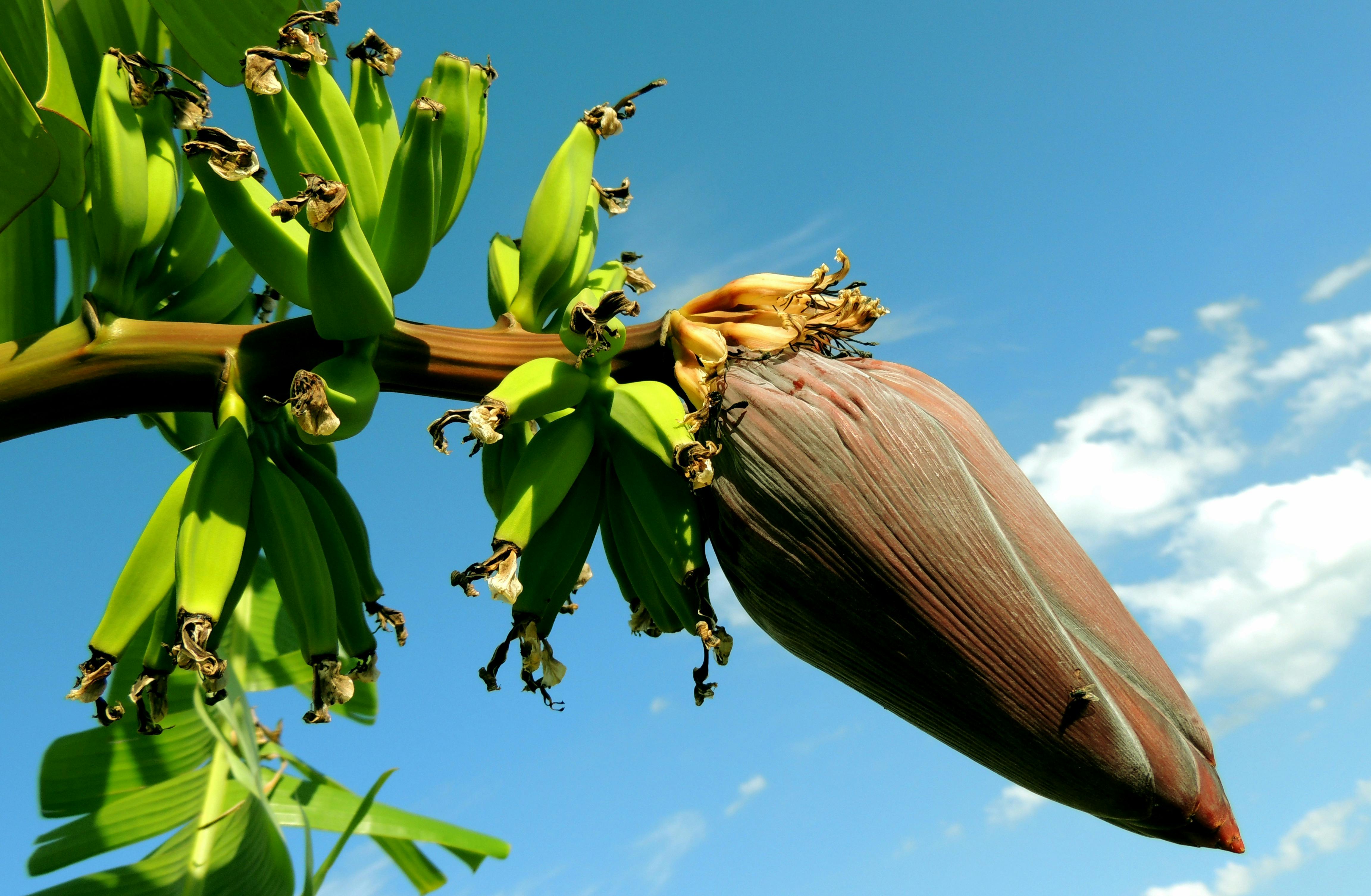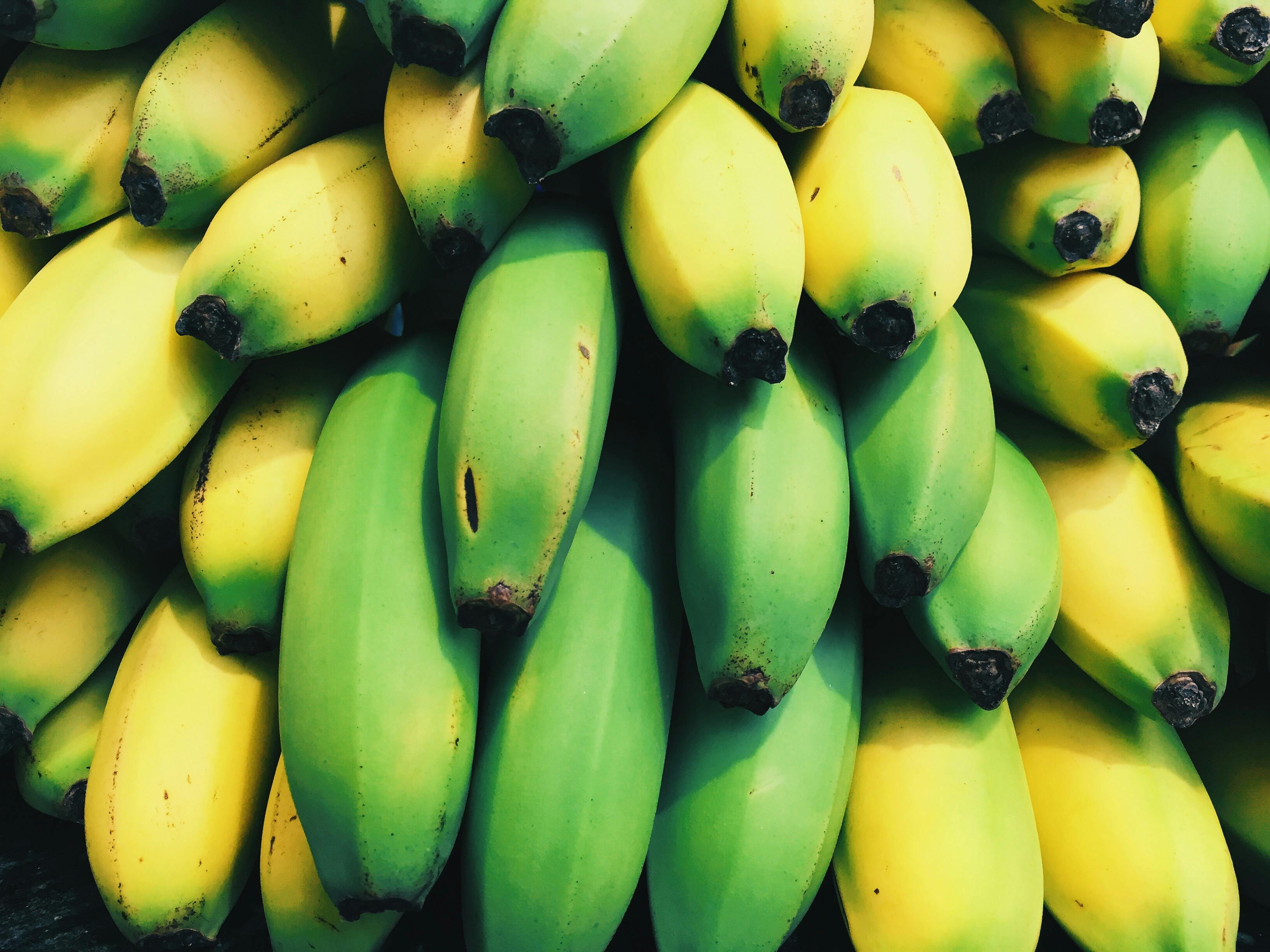Key Takeaways
- Versatile Condiment: Banana vinegar, originating from Southeast Asia, is a unique ingredient made from fermented bananas, adding a distinct tangy flavor to various dishes.
- Variety of Flavors: Available in Maturebanana, Green Banana, Spiced, and Aged varieties, each offers different taste profiles perfect for salads, pickling, sauces, and gourmet recipes.
- Health Benefits: Packed with nutrients like Vitamin C, potassium, and acetic acid, banana vinegar supports digestive health, metabolism, blood sugar regulation, and heart health.
- Dual Fermentation Process: Crafted through both alcoholic and acetic acid fermentation, ensuring a rich and robust flavor that sets it apart from regular vinegars.
- Culinary Applications: Enhances a wide range of recipes including salad dressings, marinades, pickles, sauces, and even baked goods, making it a versatile addition to any kitchen.
- Distinct from Other Vinegars: Its mild fruity tang and versatility make banana vinegar a superior choice compared to traditional vinegars like white or balsamic, suitable for both savory and sweet dishes.

I’ve always been on the lookout for unique ingredients that can add a special twist to my recipes, and banana vinegar has quickly become one of my favorites. This tangy delight not only brings a burst of flavor to dishes but also offers some surprising health benefits. From salads to marinades, I love experimenting with banana vinegar to elevate my cooking and impress my family and friends.
Discovering banana vinegar was like finding a hidden gem in the world of culinary ingredients. Its distinct taste sets it apart from regular vinegars, making it a versatile addition to any kitchen. Whether you’re a seasoned chef or just starting your cooking journey, banana vinegar is definitely worth exploring.
What Is Banana Vinegar?
Banana vinegar is a versatile, tangy condiment made from fermented bananas. I love incorporating it into my recipes for its unique flavor and health benefits.
Origins and History

Banana vinegar traces its roots to Southeast Asia, where traditional fermentation methods have been used for centuries. Countries like the Philippines and Indonesia have a long history of producing banana-based vinegars, utilizing local banana varieties. Over time, banana vinegar gained popularity worldwide due to its distinctive taste and culinary versatility.
Varieties of Banana Vinegar
- Maturebanana Vinegar: Made from fully ripe bananas, it has a sweeter taste, perfect for salad dressings and marinades.
- Green Banana Vinegar: Produced from unripe bananas, it offers a more acidic flavor, ideal for pickling vegetables.
- Spiced Banana Vinegar: Infused with spices like ginger or garlic, it adds an extra layer of complexity to sauces and dips.
- Aged Banana Vinegar: Aged for several months, this variety has a deeper, more robust flavor, suitable for gourmet dishes.
| Variety | Flavor Profile | Best Uses |
|---|---|---|
| Maturebanana | Sweet and mild | Salad dressings, marinades |
| Green Banana | Sharp and acidic | Pickling vegetables |
| Spiced Banana | Complex and aromatic | Sauces, dips |
| Aged Banana | Deep and robust | Gourmet dishes |
Production Process
Creating banana vinegar involves a meticulous production process that transforms ripe bananas into a tangy delight.
Fermentation Methods
I utilize two primary fermentation methods to craft banana vinegar:
- Alcoholic Fermentation
- Process: Ripe bananas are mashed and combined with water and yeast.
- Duration: This stage lasts approximately 7-10 days.
- Outcome: Yeast converts sugars into alcohol, producing banana wine.
- Acetic Acid Fermentation
- Process: Banana wine is exposed to oxygen and inoculated with acetic acid bacteria.
- Duration: Fermentation continues for 3-4 weeks.
- Outcome: Alcohol is transformed into acetic acid, resulting in banana vinegar.
Ingredients Used
- Ripe Bananas: Provide natural sugars essential for fermentation.
- Water: Acts as a solvent to extract banana flavors.
- Yeast: Facilitates the conversion of sugars to alcohol in the first fermentation stage.
- Acetic Acid Bacteria: Converts alcohol into acetic acid during the second fermentation stage.
- Optional Additives: Such as sugar or spices, to enhance flavor profiles.
Health Benefits
In my exploration of banana vinegar, I have identified several health benefits. Below is its nutritional profile and potential health advantages.
Nutritional Profile
Banana vinegar contains essential nutrients that contribute to its health benefits. Here’s a breakdown of its nutritional components:
| Nutrient | Amount per Tablespoon |
|---|---|
| Vitamin C | 1 mg |
| Vitamin B6 | 0.1 mg |
| Potassium | 20 mg |
| Magnesium | 5 mg |
| Acetic Acid | 5% |
Potential Health Advantages
- Digestive Health: Acetic acid promotes healthy gut bacteria.
- Weight Management: Acetic acid supports metabolism.
- Blood Sugar Regulation: Improves insulin sensitivity.
- Heart Health: Reduces cholesterol levels.
- Antioxidant Protection: Combats free radicals.
Culinary Uses
Banana vinegar enhances a variety of dishes with its tangy flavor and versatility.
Cooking and Recipes
Incorporating banana vinegar into recipes elevates their taste profiles. I use it in:
- Salad Dressings: Combines with olive oil, mustard, and herbs for a zesty vinaigrette.
- Marinades: Tenderizes meats by blending with garlic, soy sauce, and honey.
- Sauces: Creates rich reductions when mixed with balsamic vinegar and spices.
- Pickling: Preserves vegetables by immersing them in a banana vinegar brine.
- Baking: Adds a subtle tang to bread and pastry doughs when substituted for traditional vinegars.
Pairing with Foods
- Mature Banana Vinegar: Complements mild greens like spinach and romaine.
- Green Banana Vinegar: Balances robust proteins such as beef and pork.
- Spiced Banana Vinegar: Enhances flavorful dishes like roasted vegetables and grilled chicken.
- Aged Banana Vinegar: Pairs well with strong cheeses and charcuterie boards.
| Banana Vinegar Type | Best Pairings |
|---|---|
| Mature Banana Vinegar | Spinach, Romaine, light salads |
| Green Banana Vinegar | Beef, Pork, hearty stews |
| Spiced Banana Vinegar | Roasted vegetables, grilled chicken |
| Aged Banana Vinegar | Strong cheeses, charcuterie boards |
Comparing to Other Vinegars
Banana vinegar stands out among other vinegars with its unique characteristics and applications.
Taste and Flavor Profile
Banana vinegar offers a mild tanginess combined with subtle fruity flavors, setting it apart from the sharp acidity of white vinegar and the rich sweetness of balsamic vinegar. Its balanced profile enhances dishes without overpowering other ingredients, making it a versatile choice for various culinary creations.
Versatility in Applications
In the kitchen, banana vinegar excels in salad dressings, marinades, and pickling, much like apple cider vinegar. However, its fruity undertones make it ideal for tropical and banana-based recipes, adding a unique twist that other vinegars can’t provide. Additionally, banana vinegar’s gentle acidity makes it suitable for baking and sauces, offering flexibility that adapts to both savory and sweet dishes.
Where to Buy and Storage Tips

I find banana vinegar available through various purchasing options. You can buy it at local grocery stores, where organic and international sections often carry it. Alternatively, specialty stores offer a wider selection, including varieties like spiced and aged banana vinegar. Online retailers provide convenient access, enabling you to compare prices and read reviews before purchasing. If local options are limited, ordering directly from producers ensures freshness and authentic flavors.
Proper storage maintains banana vinegar’s quality. I store it in a cool, dark place, such as a pantry or kitchen cabinet, to prevent light from degrading its flavor. Always sealing the bottle tightly after use limits exposure to air and preserves its tangy profile. Refrigeration isn’t necessary but can extend shelf life, especially for spiced varieties. Ensuring the storage area remains consistent in temperature avoids fluctuations that may affect its acidity and taste.
Conclusion
Exploring banana vinegar has been such a rewarding experience for me Its unique tang has transformed my cooking and added a fresh twist to many of my favorite dishes I’m always excited to experiment with its different varieties and discover new ways to use it
What I love most is how easy it is to incorporate into everyday meals and the extra health benefits it brings It’s a simple ingredient that makes a big impact and has quickly become a staple in my kitchen
If you haven’t tried banana vinegar yet I highly recommend giving it a shot You might just find it’s the perfect addition to your culinary adventures
Frequently Asked Questions
What is banana vinegar?
Banana vinegar is a unique condiment made from fermented bananas. Originating from Southeast Asia, particularly the Philippines and Indonesia, it offers a tangy flavor that enhances various dishes. Made through a two-step fermentation process, banana vinegar comes in different varieties, each with distinct tastes. Its versatility makes it a valuable addition to any kitchen, suitable for both seasoned cooks and beginners looking to add a fruity acidity to their recipes.

What are the different types of banana vinegar?
« Banana Oil: Uses and Benefits You Didn’t Know About
Banana Tea: Soothing and Nutritious – Unlock Its Health Benefits and Relaxing Recipes Today »
There are several varieties of banana vinegar, including:
- Mature Banana Vinegar: Sweet and mild, perfect for delicate salads.
- Green Banana Vinegar: Sharp and acidic, ideal for robust proteins like beef.
- Spiced Banana Vinegar: Complex and aromatic, enhances dishes like roasted vegetables.
- Aged Banana Vinegar: Deep and robust, pairs well with strong cheeses and charcuterie.
Each type offers unique flavor profiles suited to specific culinary applications.
How is banana vinegar made?
Banana vinegar is produced through a two-step fermentation process:
- Alcoholic Fermentation: Ripe bananas are mashed, mixed with water and yeast, and left to ferment for 7-10 days, creating banana wine.
- Acetic Acid Fermentation: The banana wine is exposed to oxygen and inoculated with acetic acid bacteria for 3-4 weeks, transforming the alcohol into acetic acid and producing banana vinegar.
Key ingredients include ripe bananas, water, yeast, and acetic acid bacteria, with optional additions like sugar or spices for enhanced flavor.
What are the health benefits of banana vinegar?
Banana vinegar offers several health benefits, including:
- Digestive Health: Promotes a healthy gut.
- Weight Management: Aids in controlling appetite.
- Blood Sugar Regulation: Helps stabilize blood sugar levels.
- Heart Health: Supports cardiovascular function.
- Antioxidant Protection: Provides essential vitamins like Vitamin C and B6, potassium, and magnesium.
Its nutritional profile makes it a beneficial addition to a balanced diet.
How can I use banana vinegar in cooking?
Banana vinegar is versatile and can enhance various dishes:
- Salad Dressings: Adds a tangy flavor to greens.
- Marinades: Great for tenderizing and flavoring meats.
- Sauces: Enhances the depth of sauces.
- Pickling: Perfect for pickling vegetables.
- Baking: Adds a subtle acidity to baked goods.
Each type of banana vinegar pairs well with specific ingredients, making it a flexible ingredient in the kitchen.
How does banana vinegar compare to other vinegars?
Banana vinegar has a mild tanginess with subtle fruity flavors, distinct from other vinegars:
- White Vinegar: Sharper acidity.
- Balsamic Vinegar: Rich sweetness.
Banana vinegar offers a balanced profile that enhances dishes without overpowering other ingredients, making it a versatile choice for various culinary creations.
Where can I buy banana vinegar?
Banana vinegar can be purchased at:
- Local Grocery Stores: Often found in the condiment or international sections.
- Specialty Stores: Stores focusing on gourmet or international foods.
- Online Retailers: Websites like Amazon offer a variety of brands, prices, and customer reviews.
Shopping online provides convenience and the ability to compare prices and read reviews to choose the best option for your needs.
How should I store banana vinegar?
To maintain its quality, store banana vinegar in a cool, dark place with the bottle tightly sealed after use. While refrigeration isn’t necessary, it can extend the shelf life of spiced varieties. Ensure the storage area has a consistent temperature to preserve its acidity and taste. Proper storage helps retain the vinegar’s flavor and nutritional benefits over time.
















